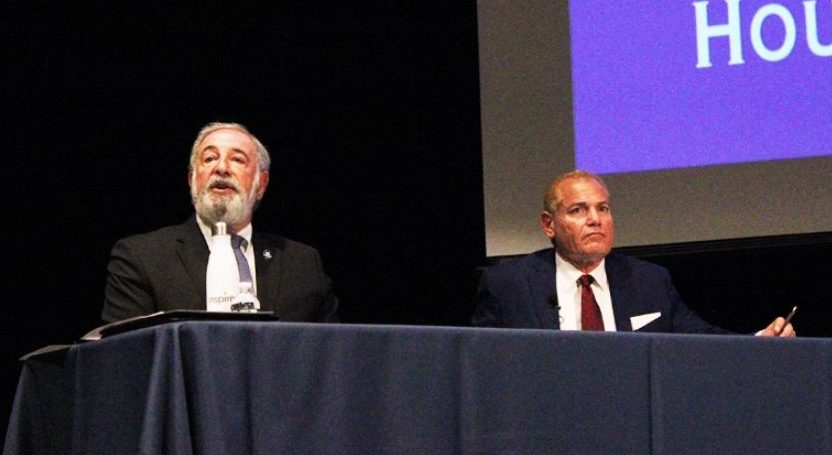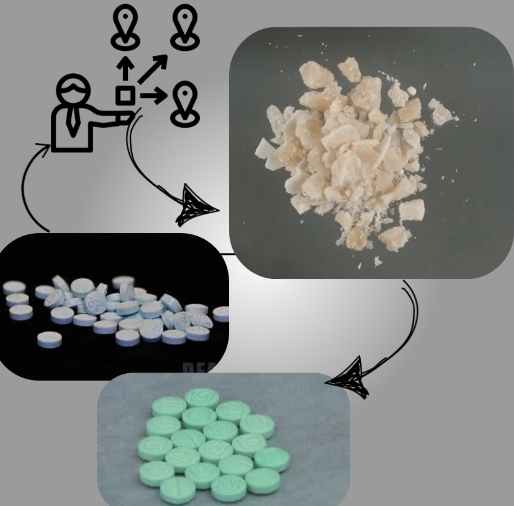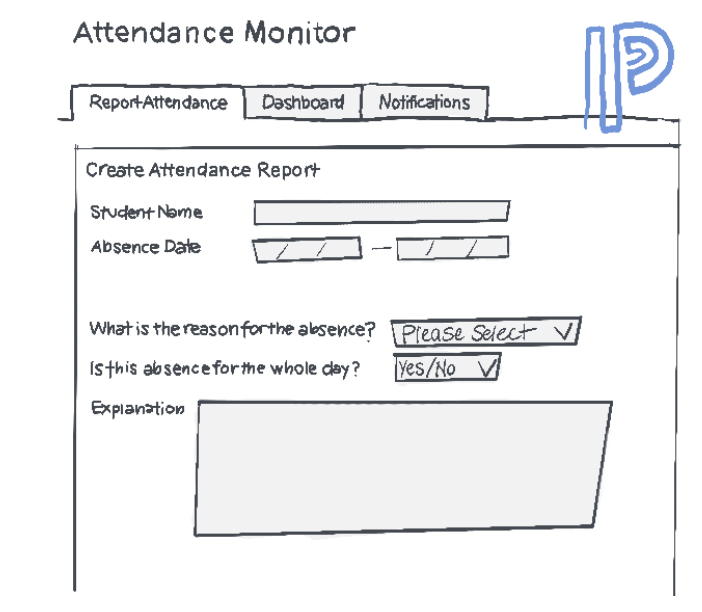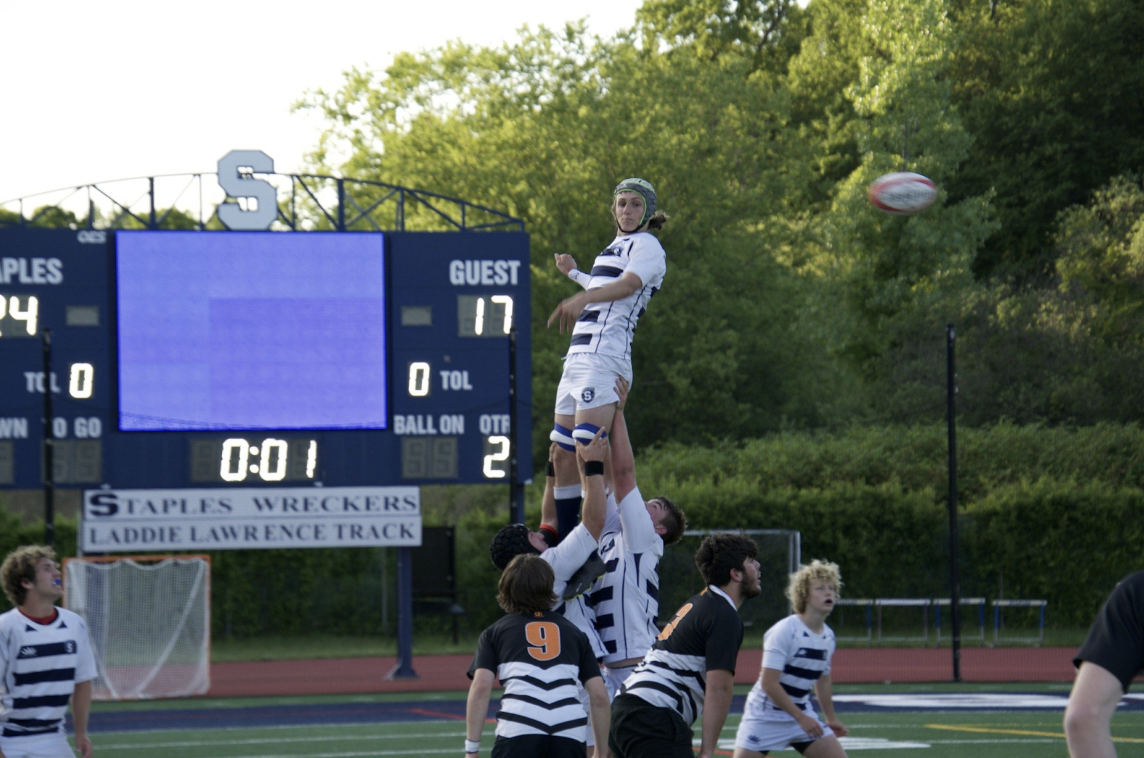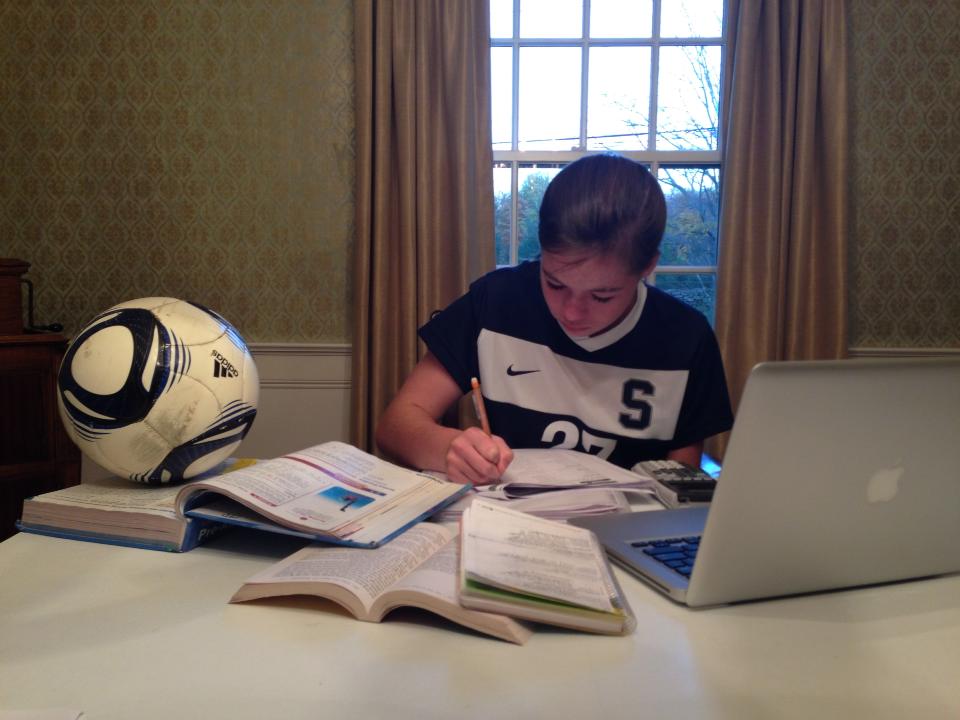When the clock strikes 5:30 on any given school afternoon, many students are at least half way through their homework, if not finished. Others have procrastinated for the past three hours, but are now ready to get down to business. Then, there are still others that have just woken up from a refreshing nap, and now have the energy to complete their studies.
Yet, the athletes of our school are first getting home from a straining practice.After showering and eating dinner, they will finally get to unzip their backpack and begin their work.
“The hardest part about managing school and sports is on the days of cross country meets. We usually get home around seven or eight and by that point I am already exhausted from the meet and have a hard time staying awake to finish my homework,” said Jordyn Patterson ’14.
However, she finds that having minimal time actually motivates her.
“I have less time to procrastinate and it forces me to plan times to get my work done efficiently,” Patterson said.
Baseball player Sam Ellinwood ’14 agrees: “Well it can be really difficult at times for sure, although completely doable if you don’t procrastinate. Often if you balance out your workload by planning ahead it really isn’t too bad…I’m not saying I’m very good at this.”
And for freshman athletes, one would expect it to be even more stressful. Combine the transition to high school with hours of practice after school, and it seems to scream “overload.” But varsity soccer player Charlotte Rossi ’17 has quickly learned to manage it all.
“It does require a lot of organization and advanced preparation. I use my free periods to get a head start on my homework each day and I use my weekends to get work done for the upcoming week,” she said.
Other than getting ahead and avoiding procrastination, Ellinwood has found one thing to be truly helpful: his teachers.
“If you are close with your teachers, they will most likely have no problem with giving you an extension for a day or two on a paper or project, as long as you let them know in advance.”


